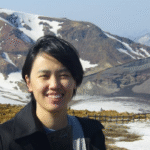 Prof. Won Fen Wong Prof. Won Fen Wong
Associate Professor in Department of Medical Microbiology
Universiti Malaya
Malaysia |
Title:
Mitochondrial and Bioenergetic Impairment in Exhausted CD8⁺ T Cells During HIV Viremia
Abstract:
In people living with HIV (PLWH), chronic viral replication and antiretroviral therapy (ART)-associated toxicity are major drivers of CD8⁺ T cell exhaustion, a dysfunctional state marked by impaired effector functions and extensive metabolic reprogramming. This study aimed to elucidate the metabolic basis of CD8⁺ T cell exhaustion in viremic versus aviremic PLWH and assess whether metabolic restoration could reverse functional impairment. To characterize the frequency and metabolic gene expression profiles of exhausted CD8⁺ T cells across viremic treatment-naïve (TN), viremic treatment-failure (TF), and aviremic treatment-responder (TR) PLWH cohorts, and to evaluate the therapeutic potential of mitochondrial-targeted antioxidants in restoring T cell function. Flow cytometry revealed significantly higher proportions of exhausted or terminally differentiated CD8⁺ T cells in the TN and TF groups compared to the TR cohort. Transcriptomic analysis using NanoString profiling showed broad downregulation of key metabolic genes, particularly those involved in oxidative phosphorylation, glycolysis, and redox regulation, in CD8⁺ T cells from viremic individuals. These changes indicated a shift toward a metabolically quiescent, naïve-like phenotype. Treatment with MitoTEMPO and N-acetyl-L-cysteine (NAC) partially improved mitochondrial function but did not restore degranulation capacity, suggesting persistent effector dysfunction. Metabolic dysfunction is a key feature of CD8⁺ T cell exhaustion in viremic PLWH. Despite partial rescue of mitochondrial function by antioxidant treatment, exhausted T cells retained impaired cytotoxic responses. These findings underscore the role of mitochondrial and metabolic insufficiency in sustaining T cell exhaustion and point to metabolic pathways as promising targets for immune rejuvenation strategies in HIV infection.
Biography:
Dr. Won Fen Wong received a Monbukagakusho:MEXT scholarship and completed her Master’s (2007) and Ph.D. (2010) in immunology at Tohoku University, Japan, under supervision of Professor Masanobu Satake. She did postdoctoral research under Japanese Society Promotion of Science (JSPS) fellowship before serving as faculty member at the Department of Medical Microbiology, Universiti Malaya. She was a Fulbright Visiting Scholar (2018) and has published over 100 peer-reviewed papers, with an h-index of 35 and >5,200 citations. Dr. Wong’s research focuses on the human immune system, particularly in host-pathogen interactions, immune regulation, and inflammation. Her work integrates molecular and cellular techniques to investigate immunopathogenesis in bacterial infections particularly Chlamydia trachomatis. She is also deeply involved in exploring T and B cell biology, immune activation and exhaustion, and autoimmune mechanisms, with the aim of developing novel immunotherapeutic strategies.
|
 Prof. Won Fen Wong
Prof. Won Fen Wong Prof. Won Fen Wong
Prof. Won Fen Wong